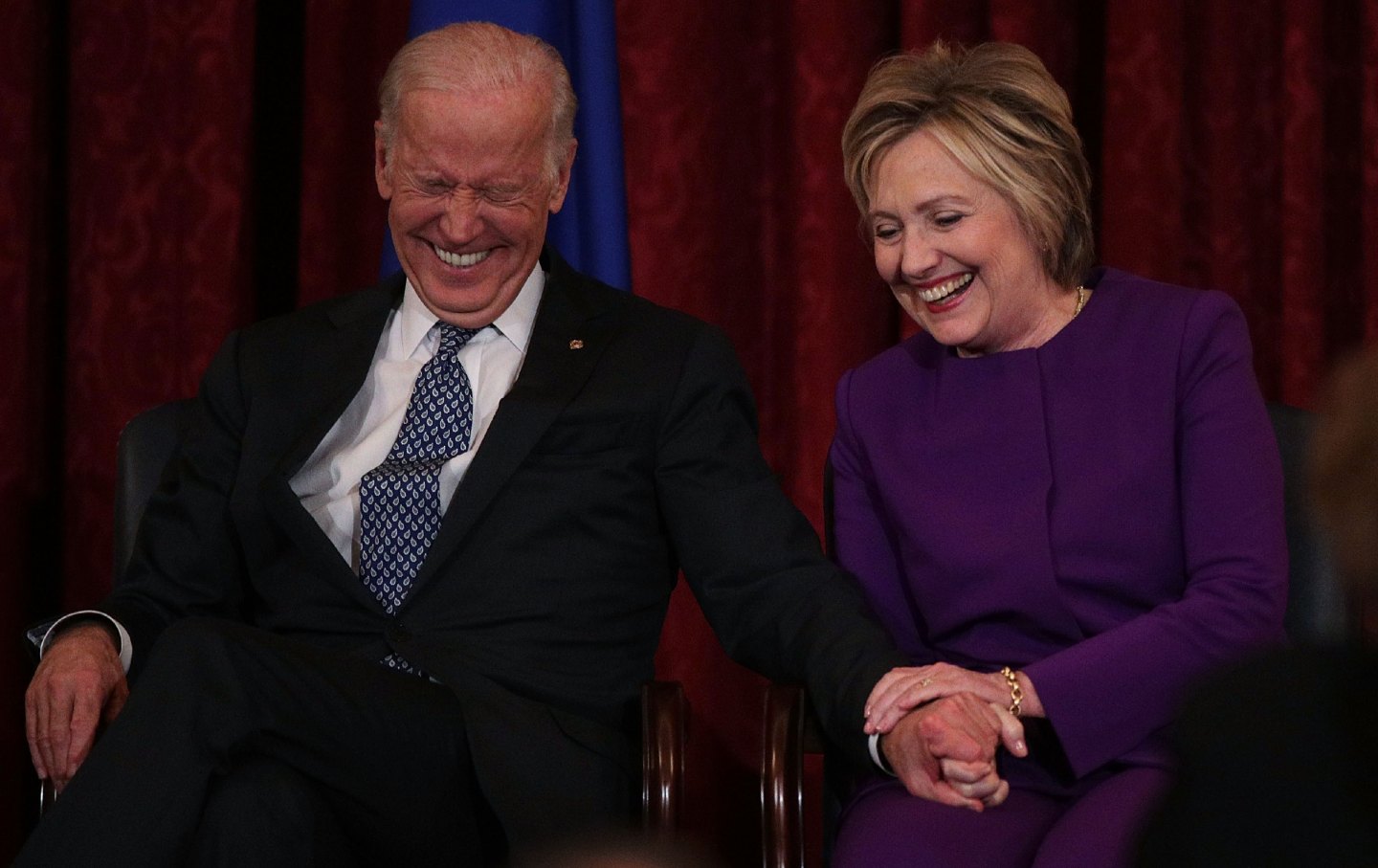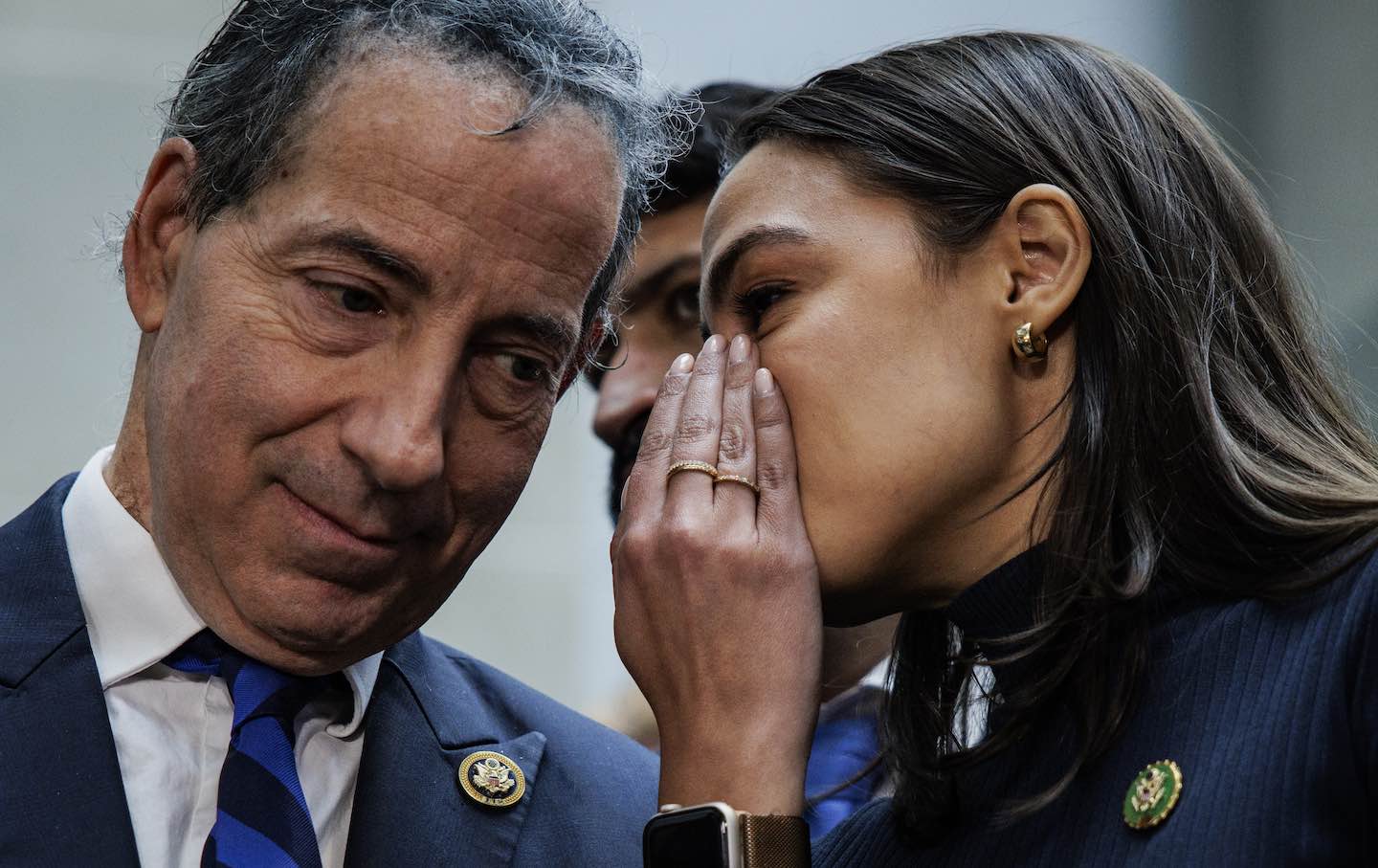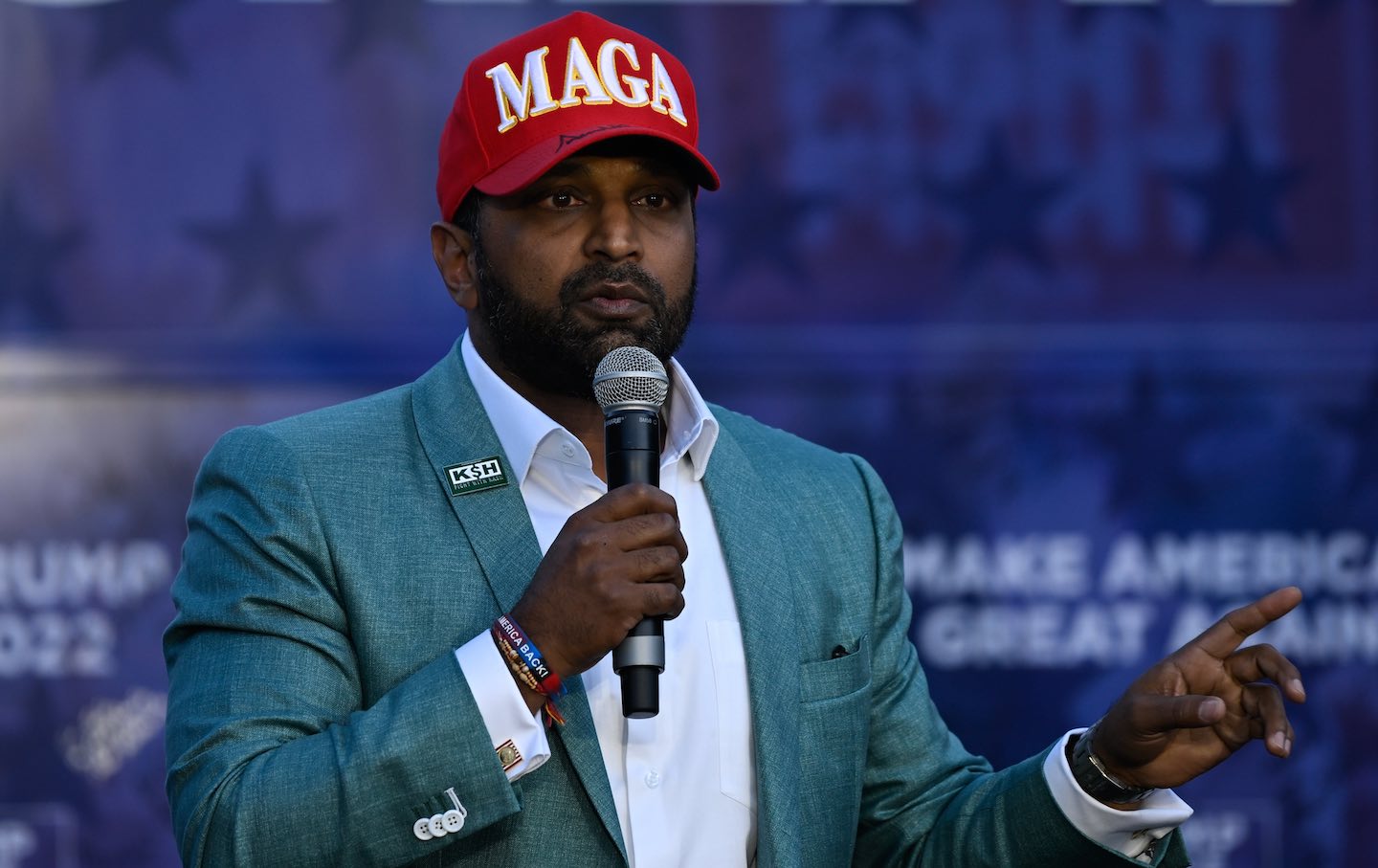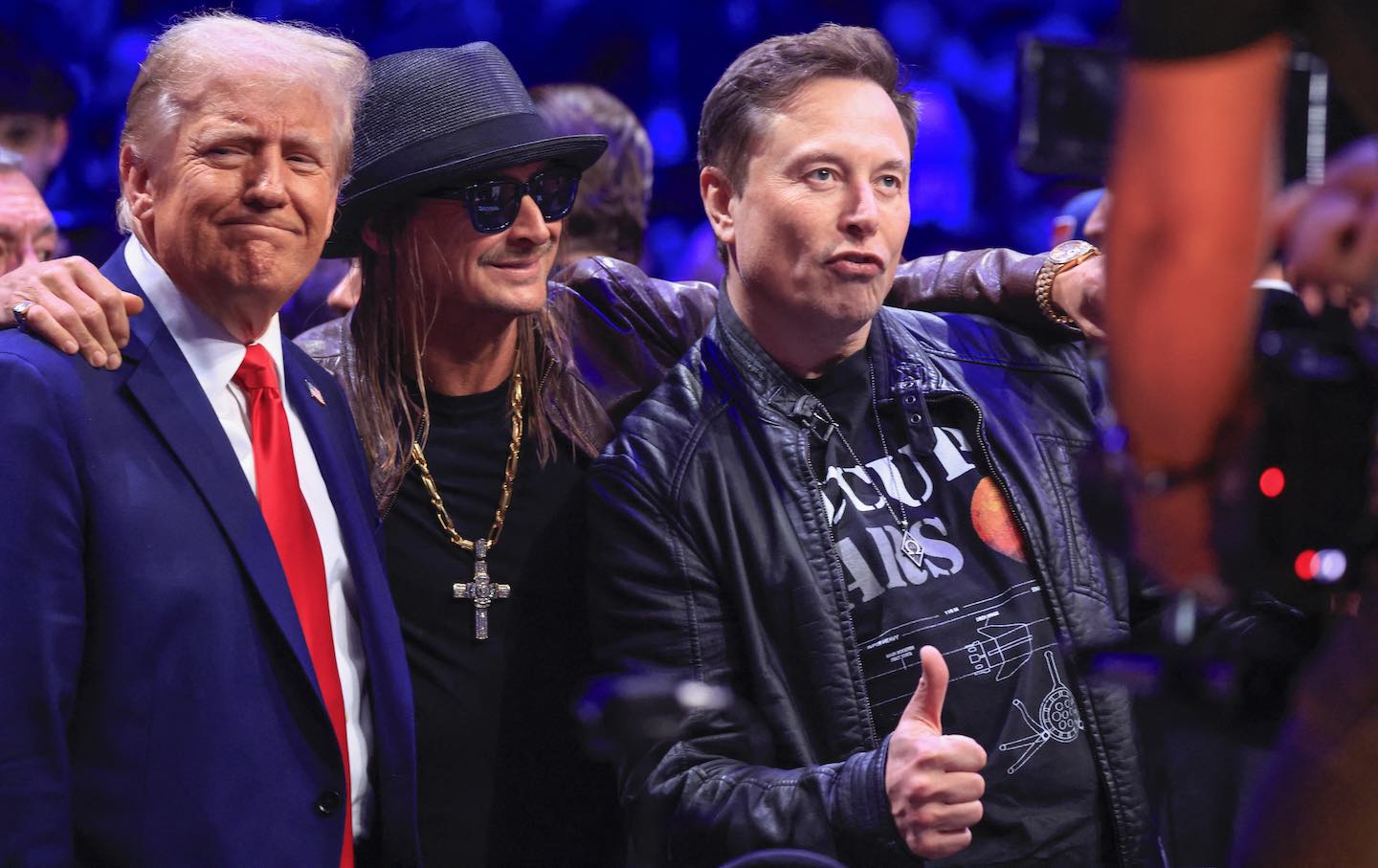Young People See “a Dying Empire” Because They’re Paying Attention
For decades, the Democratic Party has conducted low-grade generational warfare against young Americans.

As the Biden administration haphazardly rearranges its policy priorities to attract young voters, those voters themselves have staked out a grimly realist estimation of national politics. According to poll figures released by the Democratic survey outfit Blueprint, young Americans—a constituency that broke overwhelmingly for President Joe Biden in the 2020 election—take a dim view of the country’s prospects and envision no meaningful change coming about under the stewardship of either major party. In an online survey of 943 respondents between the ages of 18 and 30, Blueprint fielded a sustained blast of political malaise. Semafor rounded up the poll’s most salient findings:
49% agreed to some extent that elections in the country don’t represent people like them; 51% agreed to some extent that the political system in the US “doesn’t work for people like me;” and 64% backed the statement that “America is in decline.” A whopping 65% agreed either strongly or somewhat that “nearly all politicians are corrupt, and make money from their political power”—only 7% disagreed.
Not surprisingly, a corollary belief stemming from this glum appraisal is that elections aren’t very consequential; 48 percent of respondents agreed with the statement that “it doesn’t matter who wins elections, nothing changes,” with just 30 percent disagreeing. (A sizable cohort of 26 percent said they neither disagreed nor agreed, which still lands far short of a ringing endorsement of the prospect of reform through the ballot box.)
The range and depth of this downbeat sentiment bespeak something more than just maladroit messaging from the Biden campaign or a defective formula for drafting youth-friendly policies. For decades, the neoliberal Democratic Party has conducted low-grade generational warfare against young Americans, demonizing them as inert and amoral civic actors prone to extreme violence, coarseness, cultural resentment, and free-range sociopathy. It’s a tradition that harks back to the pop-music hearings in Congress organized by Tipper Gore, the moral and cultural panics stoked by the 1999 Littleton school massacre, and the provisions of the 1994 crime bill sponsored by Delaware Senator Joe Biden. The bizarre thing about all of this elite fretting about the defective mores and moral compass of the young was that virtually all indicators of youth-generated anomie—from teen pregnancy and drug use to violent crime and drunk driving—were all in steady decline over the ’90s heyday of Democratic Party youth-baiting.
It thus shouldn’t be all that jarring for Gen Z poll respondents to greet the legacy of this Boomer-branded rage with a gloss on that time-honored adolescent taunt, “I know you are, but what am I?” Earlier this month, after all, Hillary Clinton—who propelled many of those neoliberal youth-improvement schemes in her first major policy tract, It Takes a Village—appeared on Morning Joe to berate anti-Gaza protesters on campus for their faulty grasp of Middle East history. This headmaster reflex was particularly awkward since Clinton herself had championed many of the most lamentable fiascos making up the United States’ recent history in the region, from the disastrous 2003 invasion of Iraq to the mishandling of the unrest in Libya in 2012 to the surreal championing of Facebook—yes, Facebook—as a chief instigator of the democratic uprisings that made up the Arab Spring.
But this sort of broad-brush generational projection is precisely the point of the Boomer-authored war on the young; the generation that once rallied to the oldster-baiting sentiments of “The Times They Are A-Changin’” conspicuously dropped the notion of generational torch-passing once they came into cultural and political power. The much-bruited “age issue” dogging Biden’s reelection bid is, in this view of things, a symptom rather than a cause of the Democratic Party’s generational woes. Once a generation declares a de facto monopoly on reformist politics, intellectual sclerosis is an all-but guaranteed follow-on symptom; the overriding mandate becomes to herd dissenting youth into party-line formation, rather than to embrace them as sources of revitalization and constructive criticism.
It’s bracing to contrast the gerontocratic cast of liberal-Democratic leadership with the Republican Party’s rapid turnover in its sanctums of power. It wasn’t that long ago, after all, that the MAGA-purged House Speaker Kevin McCarthy was a self-advertised “young gun” bearing an ideologically impeccable Tea Party pedigree. McCarthy’s immediate predecessor, Paul Ryan, was the fire-breathing apostle of fiscal and political revolution on Capitol Hill—until he abruptly wasn’t. Over on the Democratic side of the aisle, meanwhile, Nancy Pelosi, Steny Hoyer, Dianne Feinstein, and, yes, Joe Biden all presided over plum leadership and committee chair posts in seeming perpetuity; the same neo-Kremlinist mindset spurred Ruth Bader Ginsburg to recklessly shun appeals for her retirement prior to relinquishing her storied Supreme Court seat by dying at the worst possible moment.
Among other things, the Democrats’ stolid allergy to generativity has rendered the party traditionally associated with the crusading spirit of social reform remarkably change-averse. That’s certainly the story told by one of the key issues that’s depressing Biden’s support among younger voters: the president’s foolish, intransigent, and morally disastrous support for the war in Gaza. Biden’s position is rooted in diplomatic dogmatism and the all-too-plain conviction that, as the former long-standing chair of the Senate Foreign Relations Committee, he has the kind of credentials destined to deliver a stable peace out of the doom loop of a genocidal war. Meanwhile, Benjamin Netanyahu and his far-right allies carry on their campaign of civilian massacres, knowing Biden will never impose a serious and lasting condition—let alone a “red line”—on the country’s lavish military support for Israel’s war. The same drumbeat of status-quo politicking dogs Biden’s campaign pitches on virtually every other policy front—from his stalled economic appeals to his resistance to serious reform of the Supreme Court.
Small wonder, in short, that young voters see an American system mired in political inertia and corruption offering them little hope of relief. “I think these statements blow me away, the scale of these numbers with young voters,” Blueprint pollster Evan Roth Smith told Semafor. “Young voters do not look at our politics and see any good guys. They see a dying empire led by bad people.” Which is all by way of saying, pace Hillary Clinton, that they’re paying pretty close attention.








